In the 15th year, a group of old friends gathered again because of "carbon"!
Whereis the future of the "carbon" road?
On June 27, the 15th "Green Development and Low-Carbon Life" theme dialogue was held in Beijing under the guidance of the Ministry of Ecology and Environment and the Beijing City People's Government and hosted by China News Weekly. Old friends from all walks of life, government, industry and research gathered together to discuss sustainable development through the "carbon" road to green productivity.

The picture shows the event site
"Friends" of the climate situation: Transformation and innovation are the "starting point" to solve all difficulties
Currently, China's north is experiencing "scorching heat", while the south is mired in "violent plum blossoms", with droughts and floods occurring. With the frequent occurrence of extreme weather around the world, many meteorological extremes have been broken. In the face of the challenge of global climate change, no one can stay aloof and remain alone.
How to respond scientifically and effectively to climate change? Several "old friends" behind the scenes and in the climate negotiations gave the answer: In addition to passive adaptation, active mitigation is still an important strategy to deal with climate change.
"An activity can be carried out for 15 consecutive years, has attracted the attention of society, and has new content every year. The connotation is becoming more and more profound, and the impact is very great." In 2010, Xie Zhenhua, former China's special envoy for climate change affairs, met with the theme activity of "Green Development and Low-Carbon Life" for the first time. This year, it was his 13th time to attend the event. Over the past 15 years, he and a group of "old friends" have witnessed China's historical process of responding to climate change.
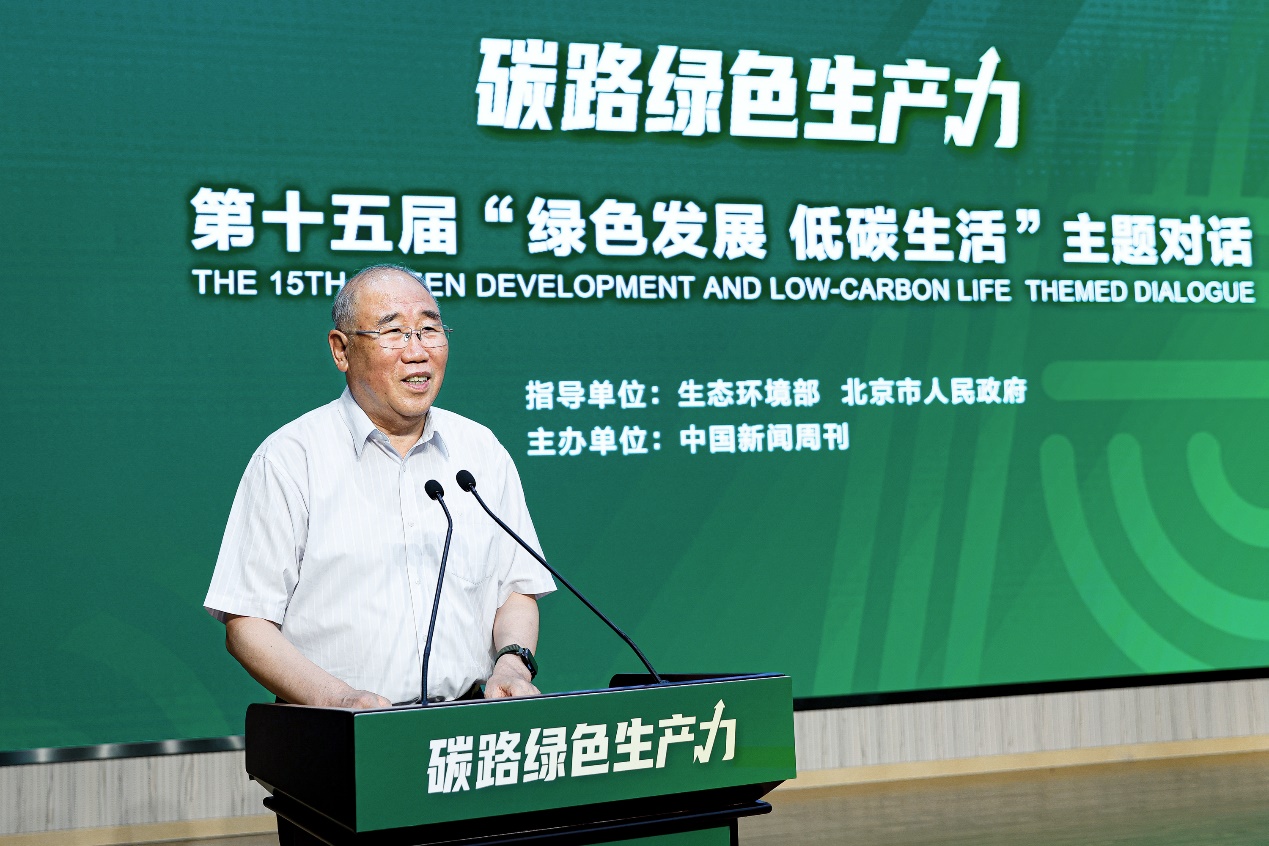
Xie Zhenhua, former China's Special Envoy for Climate Change Affairs, delivered a speech
Today, he is working with his "old friends" to work on China's transformation and innovation in response to climate change."I will sum up experiences and lessons with my comrades, and do our country's transformation and innovation in response to climate change, achieve the 'double carbon' goal, and build a community with a shared future for mankind. Better!"
In 1988, the Intergovernmental Panel on Climate Change (IPCC) was established. Su Wei, former deputy secretary-general of the National Development and Reform Commission and chief representative of China's climate negotiations at that time, participated in international negotiations and consultations on climate change. Over the past 36 years, he has grown from black hair when he first participated in the negotiations to white hair now.
Over the past 36 years, he has seen data that the global average temperature is gradually increasing-from 1906 to 2005, the century-old average temperature rise was 0.74℃; from 2011 to 2020, the temperature rise was 1.09℃ in ten years; in 2022, the temperature rise was 1.15℃; in 2023, the temperature rise was 1.45℃. And this is approaching the Paris Agreement's target of 1.5 ° C.
Over the past 36 years, he has also witnessed changes since China participated in international climate negotiations-international awareness of climate change has shifted from worry to crisis, the carbon reduction model has changed from top-down to bottom-up, and China's negotiating role has evolved from participant, promoter, contributor to leader. "Many results of international climate negotiations have been achieved through hard work. It is impossible to beat tables at the negotiating table. International matters require more communication and exchanges, present facts and reason, and focus on the overall situation and the long-term. Only then can we achieve win-win cooperation."
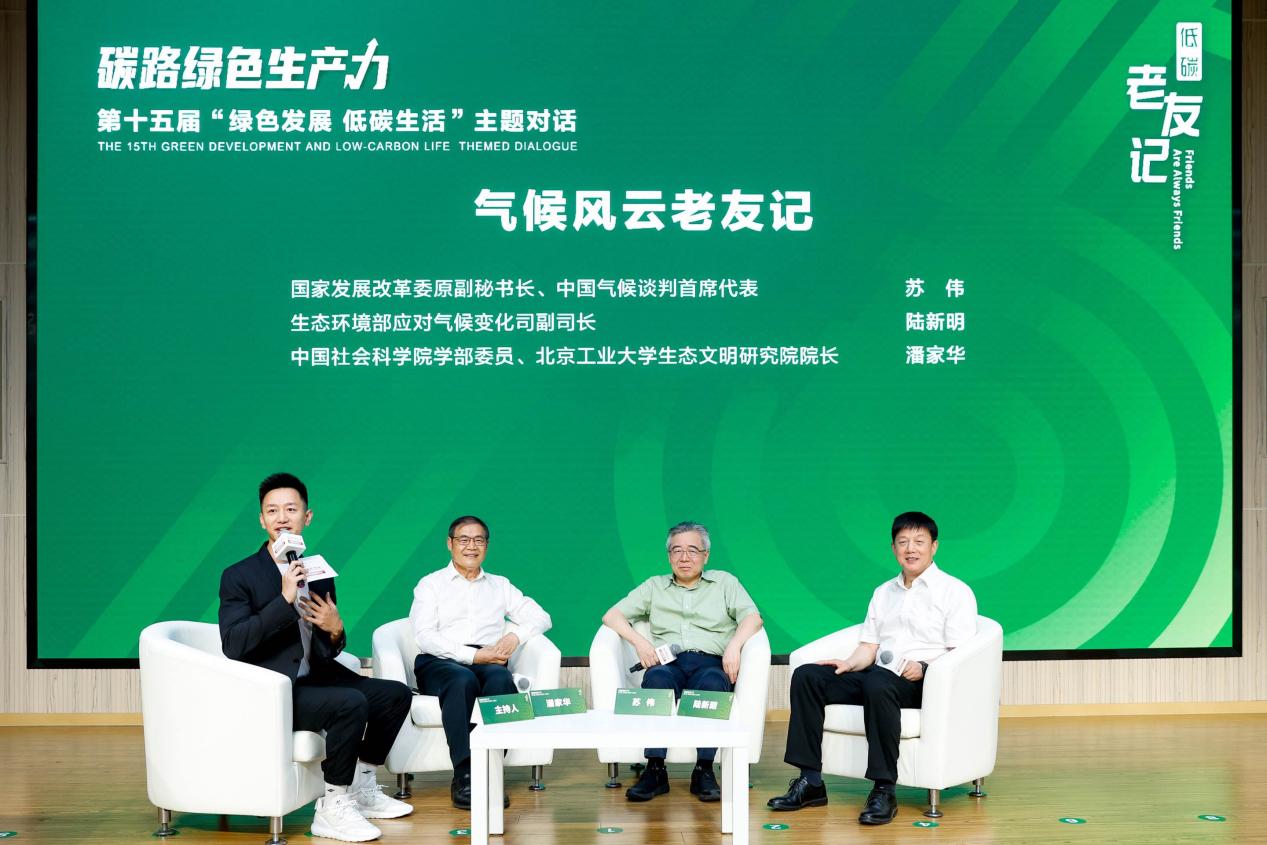
Pan Jiahua (second from left), member of the Chinese Academy of Social Sciences and dean of the Institute of Ecological Civilization of Beijing University of Technology, Su Wei (third from left), former deputy secretary-general of the National Development and Reform Commission and chief representative of China's climate negotiations, deputy director of the Department of Climate Change Response of the Ministry of Ecology and Environment Lu Xinming (first from right) participated in the round-table dialogue
"To deal with climate change, every country and even everyone has responsibilities and obligations. These responsibilities and obligations are common, but the magnitude of the responsibilities is different." Lu Xinming, deputy director of the Climate Change Response Department of the Ministry of Ecology and Environment, said that in the process of green productivity on the carbon road, we must adhere to the "common but differentiated principle". China must not only safeguard the rights and interests of developing countries, but also establish a responsible big country. Image, but also lead global climate governance. Turn addressing climate change from a challenge to a driving force for development and achieve win-win results for national and human interests.
Pan Jiahua, member of the Chinese Academy of Social Sciences and dean of the Institute of Ecological Civilization at Beijing University of Technology, sorted out the development changes and thinking changes that China has experienced along the way from carbon equity, carbon assets to carbon budgeting, and sustainable development. In his view,"'Zero carbon 'is not a challenge.' Zero carbon 'can also become a social welfare and luxurious lifestyle. We must adapt to the needs of society and follow the path of green production."
Enlightenment from the energy revolution: How can traditional energy "change towards the new"?
Energy is an important material foundation and source of power for economic and social development, and is also the main battlefield for promoting carbon peak and carbon neutrality. In this energy revolution, how can traditional energy "change towards the new"? How can new energy "go green"?
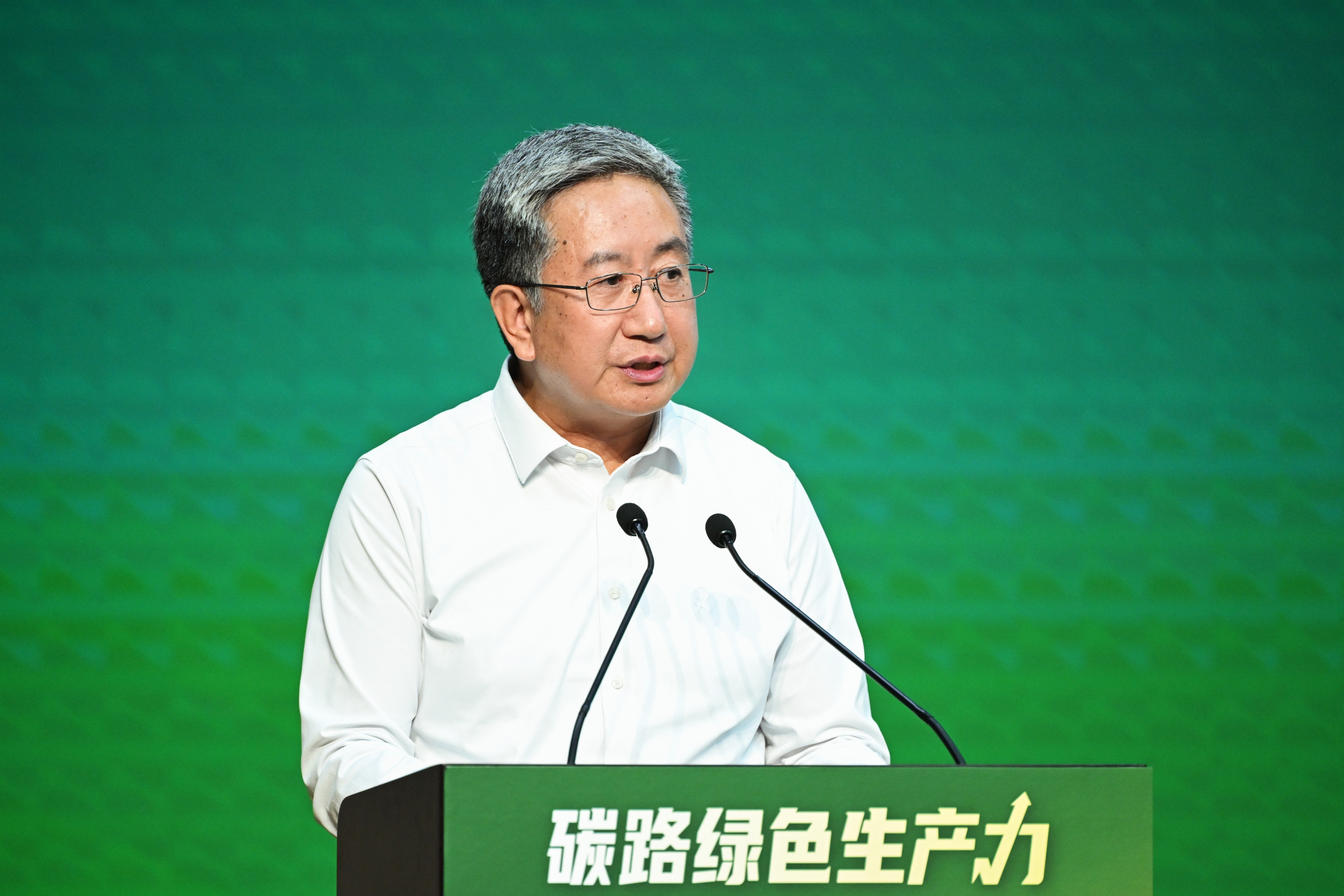
Liu Dechun, Director of the Resource Conservation and Environmental Protection Department of the National Development and Reform Commission, delivered a speech
"In April this year, more than half of the energy projects were included in the list of the first batch of green and low-carbon advanced technology demonstration projects issued by the National Development and Reform Commission." Liu Dechun, director of the Department of Resource Conservation and Environmental Protection of the National Development and Reform Commission, said in his speech that over the past ten years, my country's energy consumption, supply, technology, and institutional revolution has achieved remarkable results. Among them, wind power and photovoltaic power generation costs dropped by 60% and 80% respectively. In 2023, China's new installed capacity of renewable energy will exceed that of other regions of the world combined, becoming the largest contributor to the development of the global renewable energy industry.
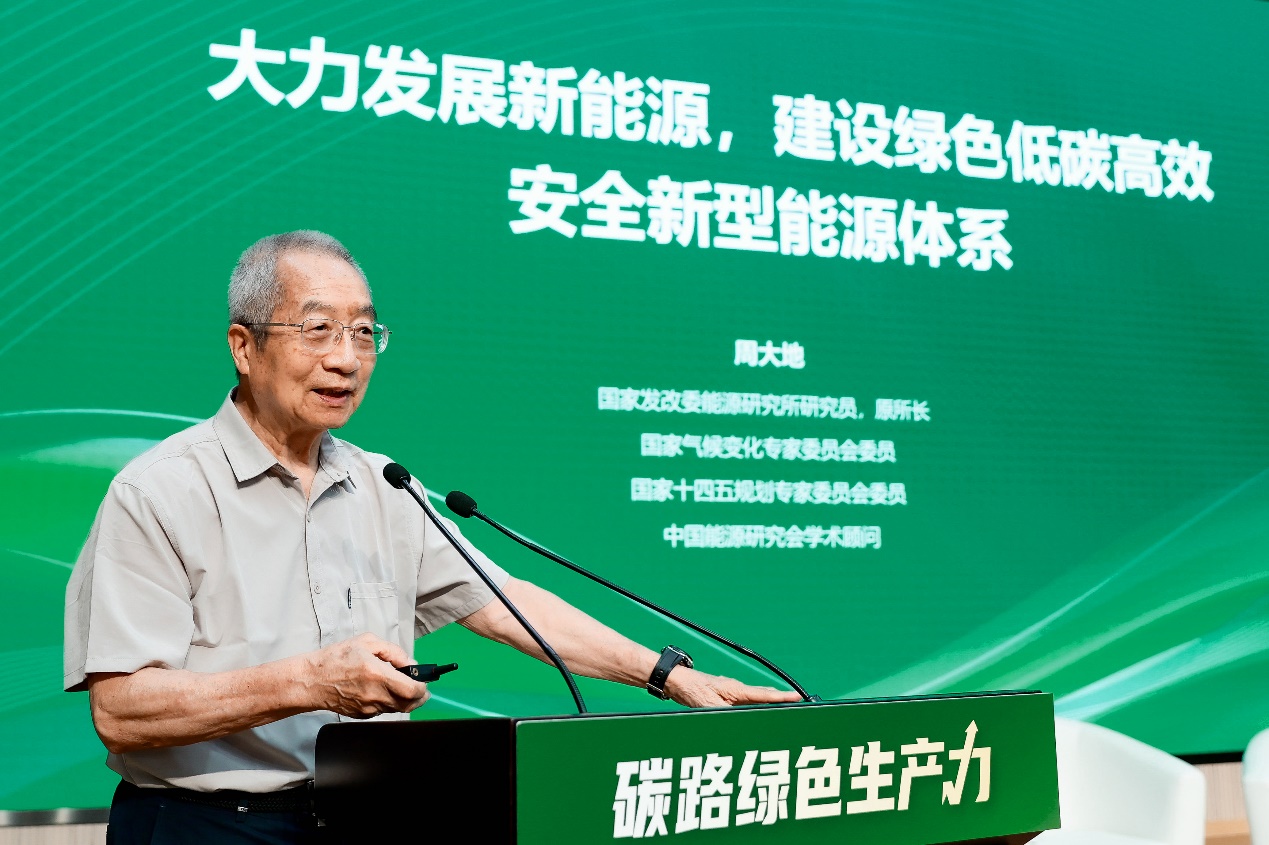
Zhou Dadi, former executive vice chairman of the China Energy Research Association and member of the National Climate Change Expert Advisory Committee, delivered a speech
"Currently, we still have growth pressure in terms of energy consumption and supply. At the same time, the pressure on environmental resources is still severe. The way out is to vigorously develop new energy sources." Zhou Dadi, former executive vice chairman of the China Energy Research Association and member of the National Climate Change Expert Advisory Committee, said in his speech that China has become the world's largest energy consumer and low-carbon transformation must be accelerated. Low carbon is not at the expense of reasonable energy consumption, but is greener, efficient and safe.
Zhou Dadi introduced,"Green and low-carbon energy systems have many advantages, including significantly improving resource security, overall improving energy system efficiency, significantly reducing energy costs in the whole society, and comprehensively improving environmental quality. Our country will further increase the annual increase in wind and solar installed capacity. The power system needs institutional reform and systematic technological transformation to adapt to the requirements of new energy power generation systems."
During the round-table dialogue session, Du Weidong, deputy general manager of the Ministry of Quality, Health, Safety and Environmental Protection of PetroChina, said that PetroChina plans to achieve three-division of new energy and oil and gas business by 2035, and thermal and hydrogen will account for 50% in 2050, recreating a "green China Petroleum". He mentioned that in recent years, China's oil and natural gas production has accounted for more than crude oil, and breakthroughs have been achieved in many key core technologies, such as the successful development of the world's first 12000-meter deep well automated drilling rig, and was the first in China to formulate and implement the "Methane Emission Control Action Plan".
In the low-carbon transformation, as a company that "sells oil for a living", it will inevitably face challenges. Chen Jun, deputy general manager of Sinopec's Health, Safety and Environmental Protection Management Department, said,"But low-carbon is not a hard life, but a process of pursuing a quality life."
He introduced that Sinopec has formulated the "Eight Actions for Carbon Peak" based on its own reality, giving full play to its advantages of abundant downstream resources, accelerating "oil conversion" and "oil conversion", and taking new energy development as the transformation direction to contribute to carbon reduction. "At present, Sinopec has built about 117 carbon neutrality demonstration projects. In 2023, the carbon emissions of the entire Sinopec output value of 10,000 yuan will decrease by 11.8% compared with 2020."
Wang Zhen, Secretary of the Party Committee and President of the Energy Economics Research Institute of CNOOC Group, pointed out,"One of the solutions to balance oil and gas production and carbon emissions is clean replacement of the production process. For offshore oil fields, shore power can be used to enter the sea, that is, offshore platforms can be connected through submarine cables. Connected to the land power grid, this is a new way to save energy and reduce carbon with the characteristics of offshore oil and gas production." At present, the third phase of green shore power in Bohai Oilfield has been put into use by the end of 2023, which can reduce carbon dioxide emissions by 1.75 million tons per year.
"The reliable capacity provided by new energy in actual operation does not exceed 5%, making it difficult to achieve reliable substitution for fossil energy." Liu Shiyu, member of the Standing Committee of the Party Committee and Deputy General Manager of China Energy Construction Electric Power Planning Institute Co., Ltd., said that with the new power system as the central link, we will accelerate the planning and construction of a new energy system, and realize fossil energy through innovation-driven, technological transformation and coal-electricity transformation. synergy between "subtraction" and renewable energy "addition".
A better life can be recycled: prolong life and reuse
Can a down jacket last for 29 years?
Can a shirt last for 15 years?
……
The answer is yes.
These have been verified by Jia Feng, former director and chief expert of the Publicity and Education Center of the Ministry of Ecology and Environment, and chief low-carbon communication officer of China News Weekly.
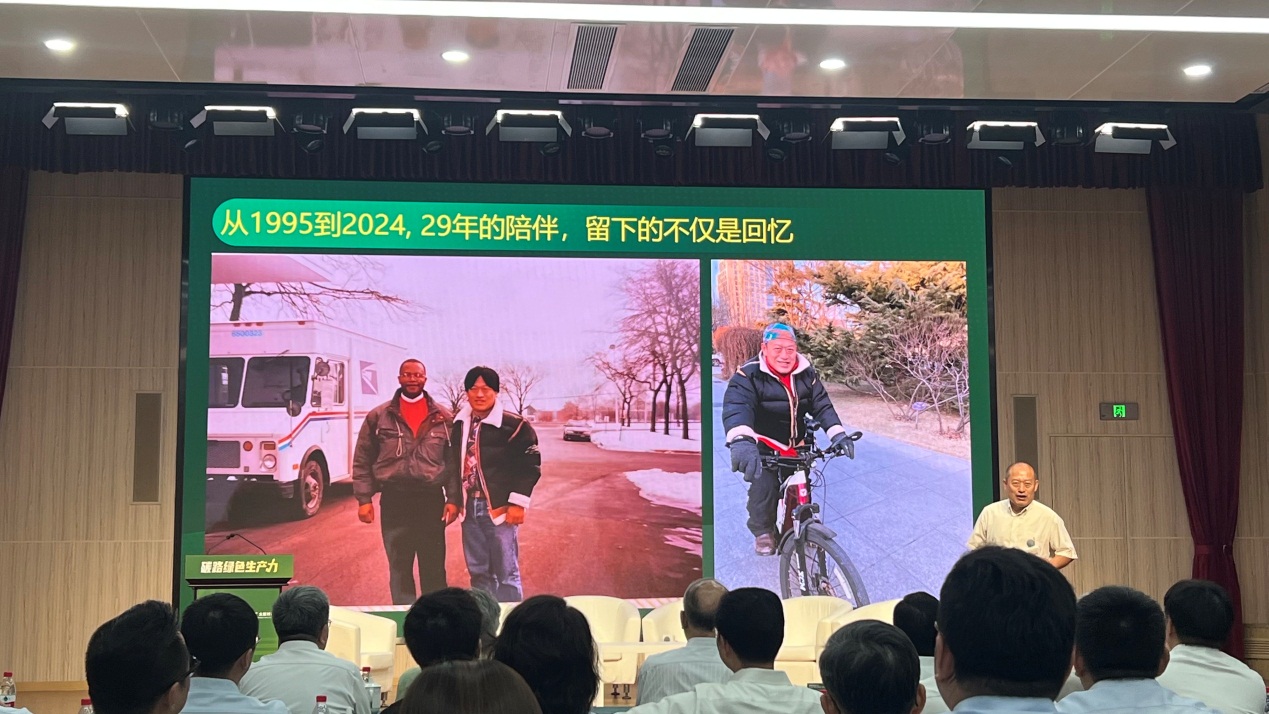
"Every year, Jia Feng can achieve 1 ton of carbon emission reduction." This was the sentence that reporters heard most at the venue. Over the years, Jia Feng has been practicing the concept of green and low-carbon as a cycling enthusiast. On the same day, he wore the shirt he used to attend the conference in 2023 and rode all the way from the North Fifth Ring Road, cycling 36 kilometers back and forth.
Nowadays, low-carbon living has become a trend.
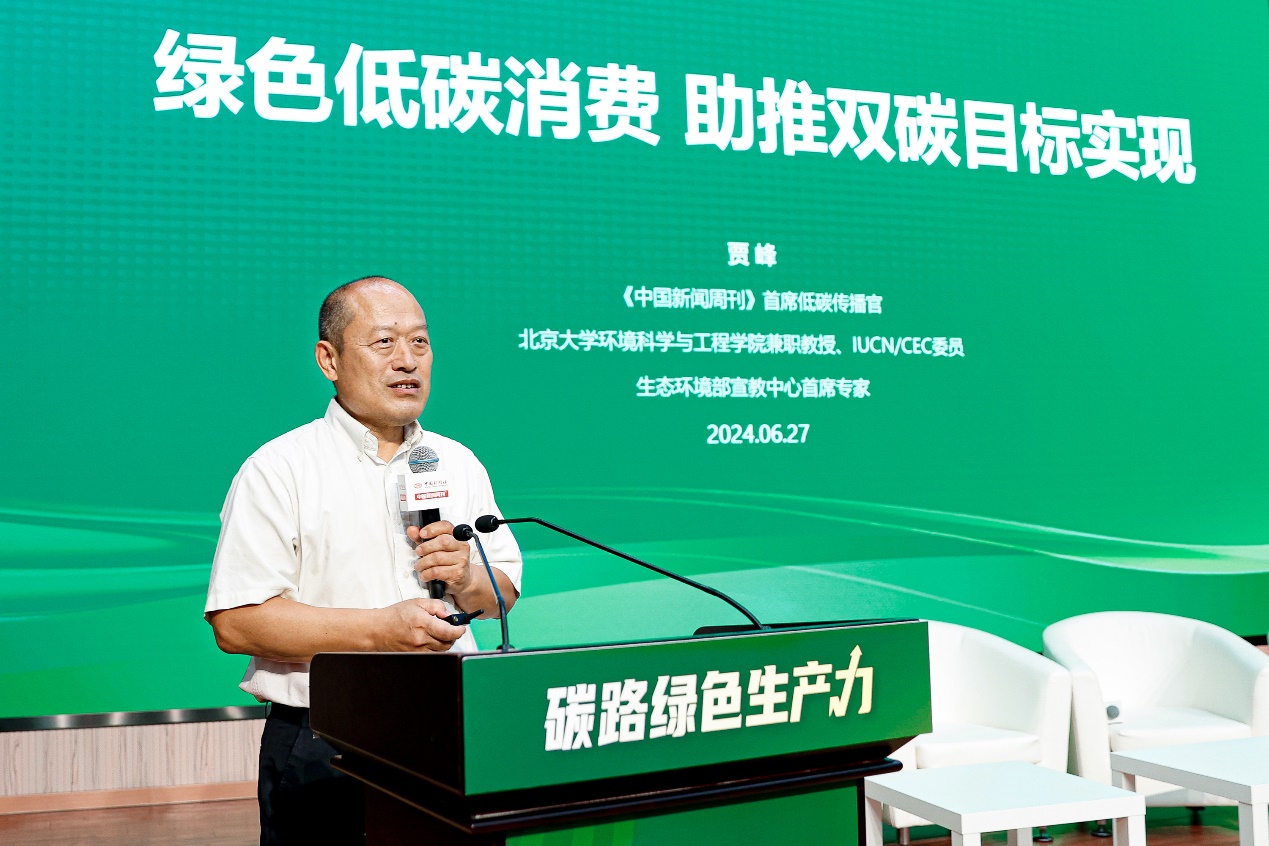
The picture shows Jia Feng, former director and chief expert of the Publicity and Education Center of the Ministry of Ecology and Environment, and chief low-carbon communication officer of China News Weekly, delivering a speech
"Three years in the new, three years in the old, and another three years in the sewing and mending." In his speech, Jia Feng put the traditional Chinese virtue of "diligence and thrift" under the "double carbon" goal for a new interpretation, and discussed how consumers can practice low-carbon life in areas such as food, clothing, housing and transportation to reduce personal carbon footprint. He said,"Currently, China's residents 'consumption sector accounts for more than half of their carbon footprint. To achieve the temperature control goals of the Paris Agreement, it is not enough to reduce carbon on the production side alone. It is necessary to fundamentally change residents' consumption patterns to make green and low-carbon life implemented."
"In the process of promoting the development of new energy and new social technologies, when output has not yet reached a certain scale, costs may rise instead of falling. How to give new energy and new technology products a price advantage depends on the public's recognition and the joint efforts of society." During the roundtable dialogue session, Sony (ChinaJin Yanmin, vice president of Co., Ltd., said that thanks to China's strong investment in new energy, Sony has achieved 100% renewable energy electricity consumption in China.
"Young people's consumption concept of cars has gradually changed from owning to using them. Rent a car when you need it instead of having to buy it. This concept of 'on-demand car' is very green." Cai Lihong, executive vice president and chief strategy officer of Yihi Car Rental, said that young people born in the 1990s and 2000s account for more than 60% of car rental users, and they all have a very welcoming attitude towards new energy vehicles.
Dong Wei, director of the Propaganda Department of the China Green Development Party Committee, said that not long ago, China Green Development had connected three new energy projects in Dabancheng, Nilek County and Midong in Xinjiang with a total scale of 6 million kilowatts to the grid. Among them, the Midong 3.5 million-kilowatt photovoltaic project is one of the desert photovoltaic projects with the largest single capacity in my country. It can provide 6.09 billion kilowatt-hours of clean electricity every year and reduce carbon dioxide emissions by more than 6 million tons.
"From the perspective of the scale of green financial products, China has become the world's largest green credit market and the second largest green bond market. The main battlefield for the future of green finance is financial support for the transformation of the energy industry and manufacturing industries." Peng Ke, deputy general manager of the corporate financial headquarters of China Merchants Bank, said that making good use of financial power to support the construction of green industries requires a combination of effective mechanisms and effective markets. Financial institutions not only provide financial products from the financial supply side, but also understand the logic of industrial development from an industrial perspective from the demand side of enterprises, and more effectively allocate financial resources to enterprises that truly represent the future.
Green development is the background of high-quality development, and new productivity itself is green productivity. Green productivity transformation is imperative!







